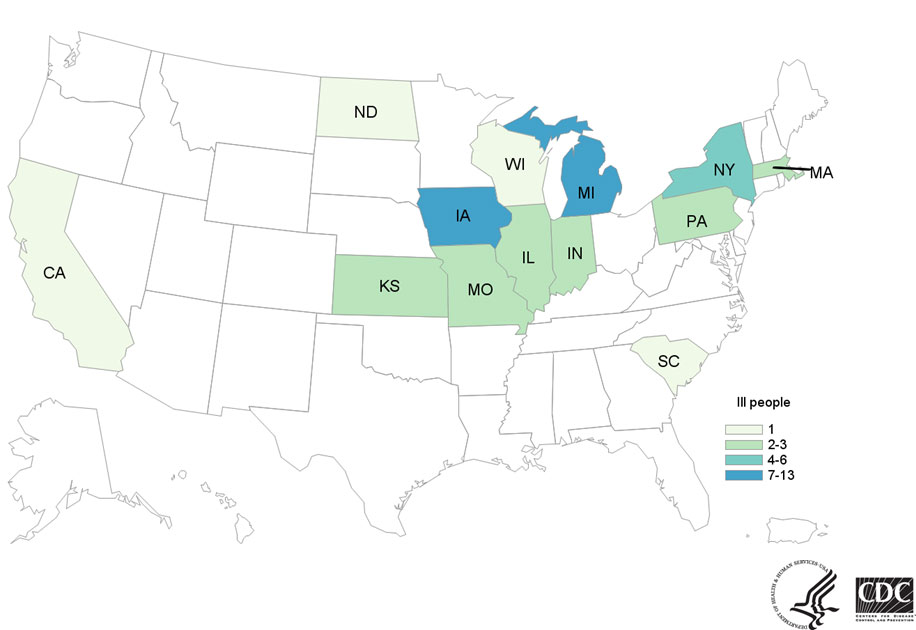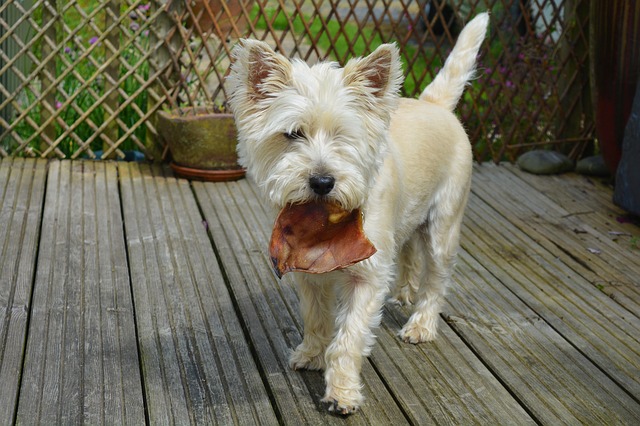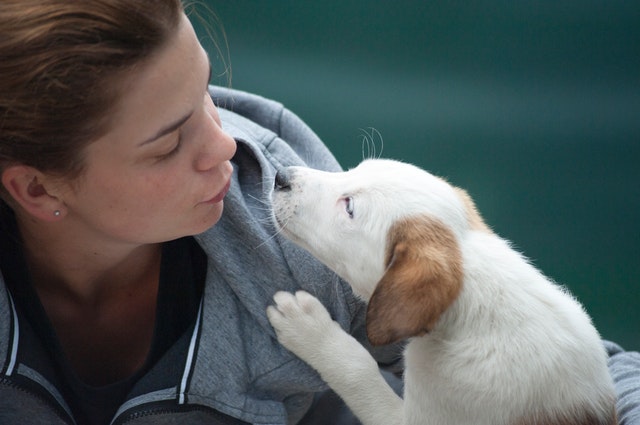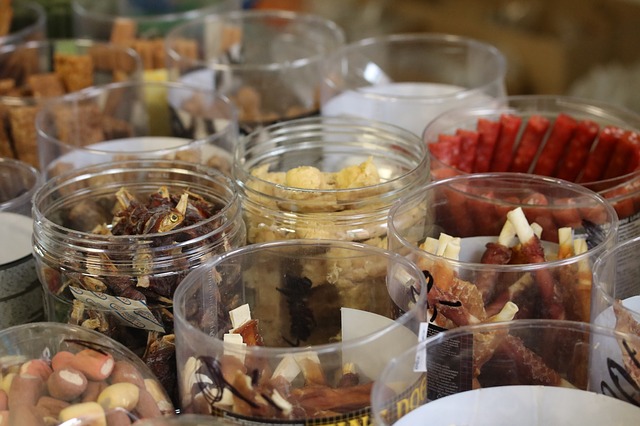45 people in 13 different states have come down with a multi drug-resistant strain of Salmonella. 12 have been hospitalized, but as yet there have been no deaths.
A link was made to pig ear dog treats after 34 people reported having contact with a dog prior to getting sick.

Officials from the Michigan Department of Agriculture and Rural Development gathered pig ear dog treats from retail locations where ill people reported buying the products. The exact outbreak strain was not identified, but other strains of Salmonella were.
Investigators from the CDC and FDA are looking into the additional strains. Although the sampled retailers have removed pig ears from their shelves, no common supplier has yet been identified.

The CDC will provide updates if/when more information becomes available. In the meantime, they recommend dog owners take the following precautions:
While Feeding Your Dog
- Always wash your hands thoroughly with soap and water right after handling pet food or treats, including pig ears.
- When possible, store pet food and treats away from where human food is stored or prepared and away from the reach of young children.
- Don’t use your pet’s feeding bowl to scoop food. Use a clean, dedicated scoop, spoon, or cup.
- Always follow any storage instructions on pet food bags or containers.

Play Safely
- Don’t let your pet lick your mouth or face after it eats pet food or treats.
- Don’t let your pet lick any open wounds or areas with broken skin.
- If you do play with your pet after it has just eaten, wash your hands and any part of your body it licked with soap and water.
Shop Safely
- Always wash your hands thoroughly with soap and water after touching unpackaged pet treats, such as food or treats in bulk bins.

Take Extra Care With Young Children
- Children younger than 5 years old should not touch or eat pet food or treats.
- Young children are at risk for illness because their immune systems are still developing and because they are more likely than others to put their fingers or other items into their mouths.
- Adults should supervise hand washing for young children
How To Tell If Your Dog Has A Salmonella Infection
- Some dogs may have Salmonella infection but not look sick. Dogs with a Salmonella infection usually have diarrhea that may contain blood or mucus. Affected animals may seem more tired than usual, and may have a fever or vomit.
- If your dog or cat has these signs of illness or you are concerned that your pet may have Salmonella infection, please contact your pet’s veterinarian.
Learn more about Pet Food Safety here.
H/T to CDC.gov
 Toledo, United States.
Toledo, United States.